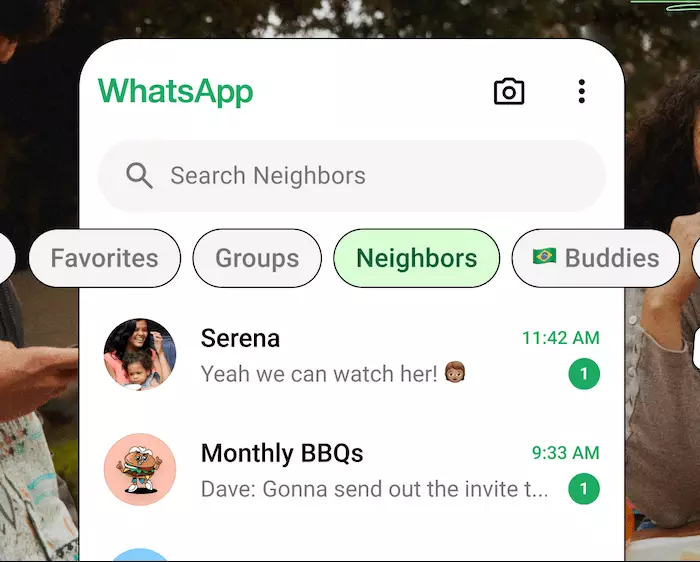In an era where communication overload is commonplace, the ability to organize messages efficiently has become a necessity for many users. WhatsApp is addressing this challenge with the launch of its new “Custom Lists” feature, announced recently, which significantly enhances user control over chat organization. This update adds a layer of personalization that allows users to categorize their conversations, making it easier to manage both personal and professional interactions amid the constant influx of messages.
Prior to this update, users were limited to only three standard filters—“All,” “Unread,” and “Groups.” While these options provided a basic level of organization, they lacked the flexibility required for users who juggle multiple conversations across various contexts. The introduction of Custom Lists marks a substantial shift away from this limitation. By allowing users to create tailored categories, WhatsApp not only acknowledges the diverse nature of its user base but incentivizes better messaging habits.
To create a Custom List, users simply tap the plus sign in the filter bar located at the top of the Chats tab. This intuitive design ensures that even novice users can easily navigate the new feature, effectively reducing the learning curve associated with updates. The ability to assign names to these lists provides clarity and relevance, promoting a more structured approach to digital discussions.
One of the standout elements of this update is its emphasis on personalization. Users can curate their messaging experience by consolidating important conversations, whether they relate to family, colleagues, or study groups. This customization fosters a more engaged and focused communication style, as users can direct their attention where it matters most without the distraction of unrelated messages.
Moreover, the functionality extends beyond mere categorization. Users can modify their lists anytime by long-pressing on a list and opting to add or remove contacts. This feature not only makes management easier but also allows for dynamic adjustments as relationships and focus areas evolve. For instance, a user may prioritize work-related chats during business hours while emphasizing personal messages in the evening.
The rollout of the Custom Lists feature is poised to significantly enhance the WhatsApp experience, and while it is being made available gradually, early adopters have already begun to appreciate the newfound organizational capabilities. As individuals navigate an era characterized by complex relationships both online and offline, tools like Custom Lists serve as not just enhancements, but as essential utilities for efficient communication.
By automatically defaulting to the “All” category, WhatsApp ensures that users are initially presented with a comprehensive view of their messages, while also empowering them with the choice to delve into categorized lists at their convenience. This balance between accessibility and customization exemplifies WhatsApp’s commitment to user satisfaction and engagement.
As communication environments grow ever more complex, innovations such as WhatsApp’s Custom Lists are essential for fostering user engagement and satisfaction, ultimately transforming the way we interact in a digital age.


Leave a Reply